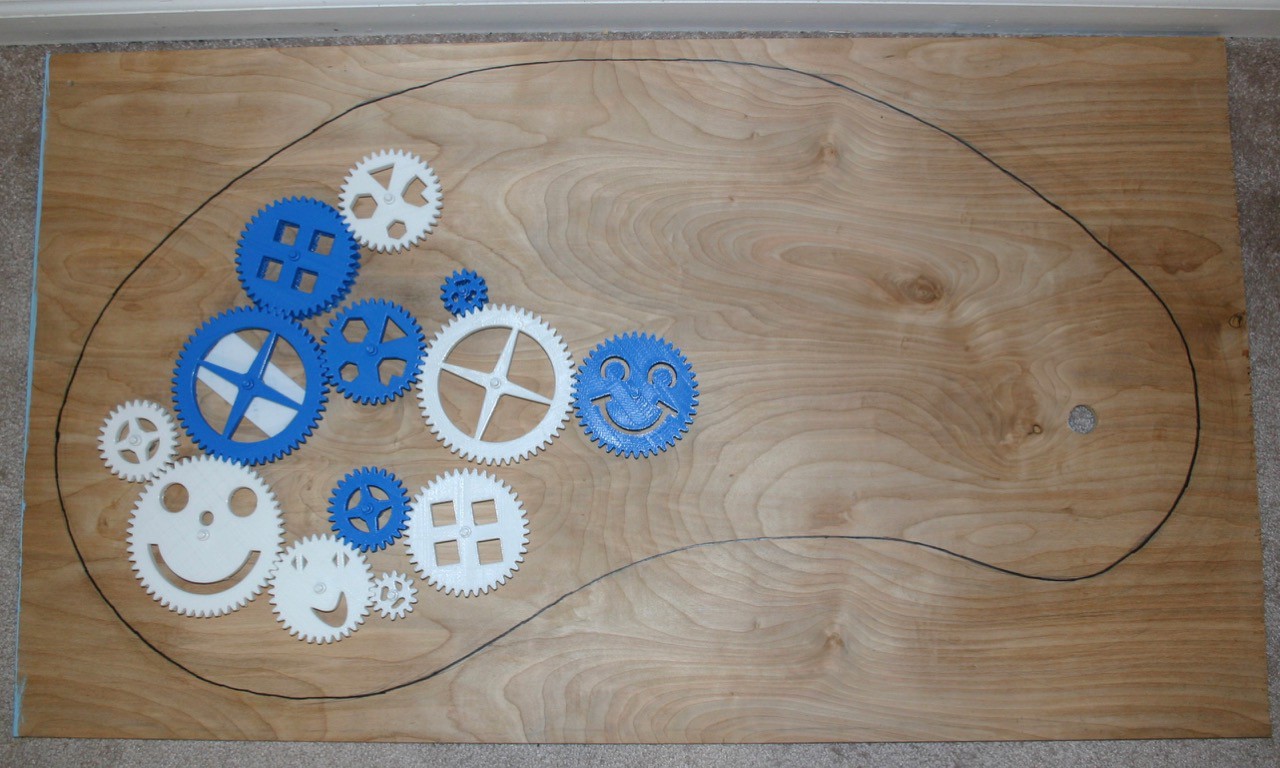
The gears started out rather plain--looking like . . . gears.
As the process unfolded and I had a few gears to play with, I found that spinning the gears by hand was somehow satisfying, so I abandoned the idea of motorizing the table and pursued the idea of interactivity.
My wife, Annelle, designed the happy faces for the gears and the shape for the acrylic top. Our daughter, Tia, and a friend, Brian Watt, assisted in creation of the vector file needed for cutting the acrylic and plywood.
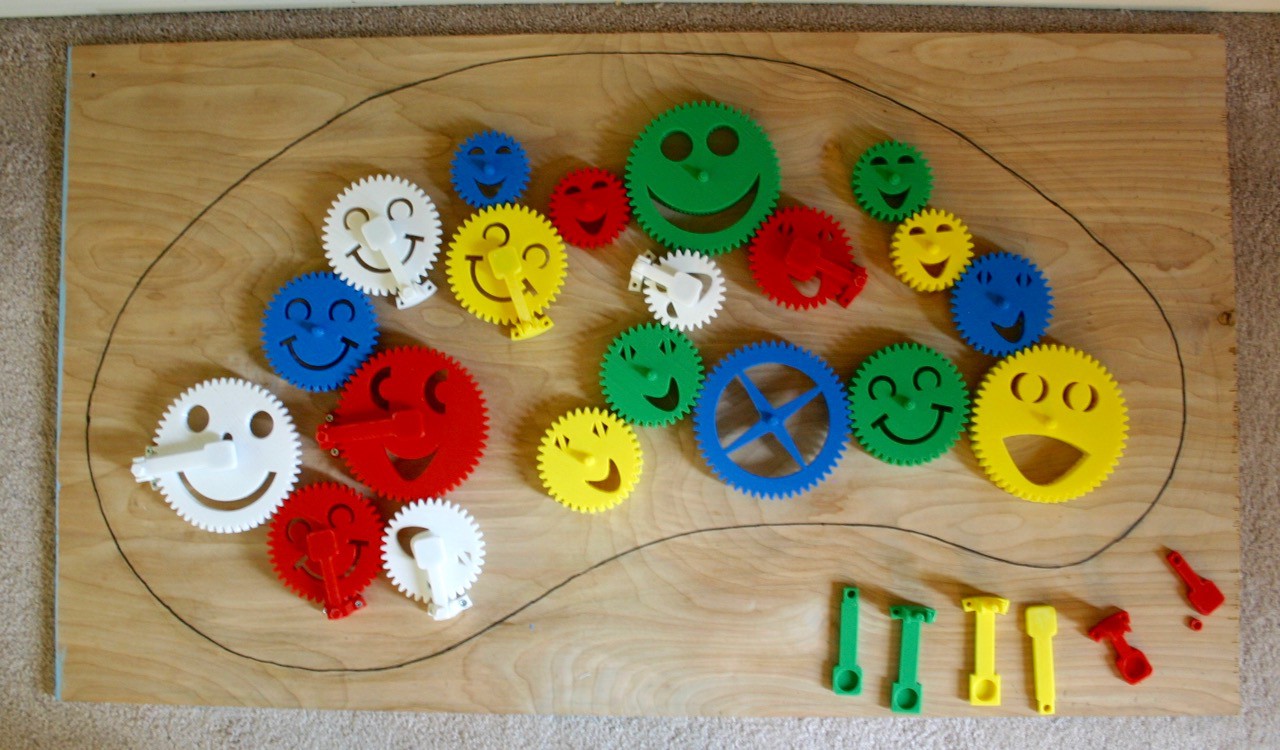
The large gears each take about 5 hours to print--then the supports have to be removed. The bearing holders take another 2 hours. Take 21 gears at 5-7 hours each and the investment in printing time is notable.
The acrylic and plywood were laser cut at Polulu.com. Just for
information, the cost to laser cut appears to be: $10.00 setup per file; $0.15 per linear inch (1/4 inch depth); material cost; shipping
For the acrylic, this is the way to go. For plywood, maybe you can do an adequate job with a sabre saw, but I would use the acrylic as my template. For legs, I used 17 inch long, 1 1/2 inch diameter round wood rods. I attached them to the plywood using printed brackets.
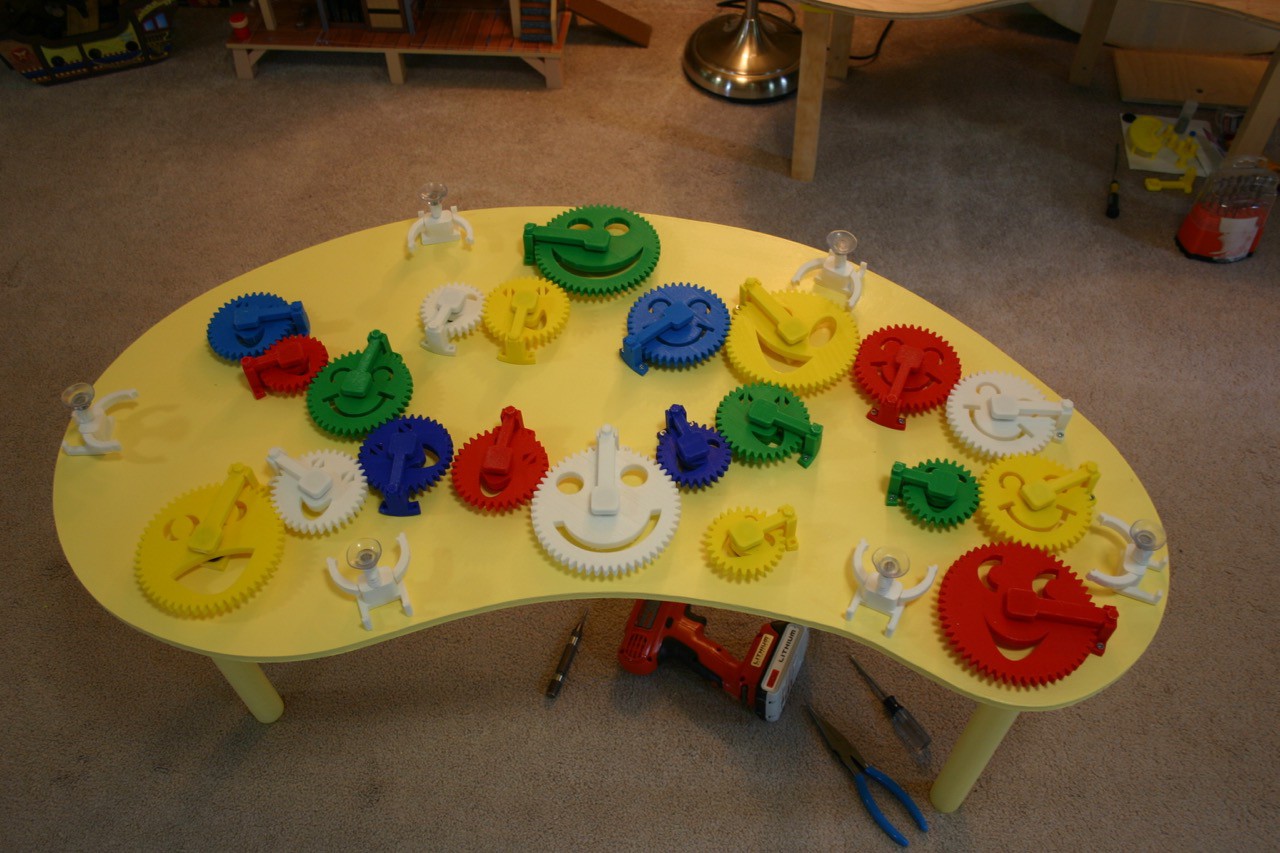
The gears were designed using Autodesk Fusion (look at add-ins, spur gear). The gears were WAY too big for my printer, so I imported them into TinkerCad (at 20% size), then made the gears 10mm thick. I added the bearing hub in Tinkercad also.
I set the table up using the little men for supports--just to be sure that there would be no gear conflicts regardless of arm positions on the little men.
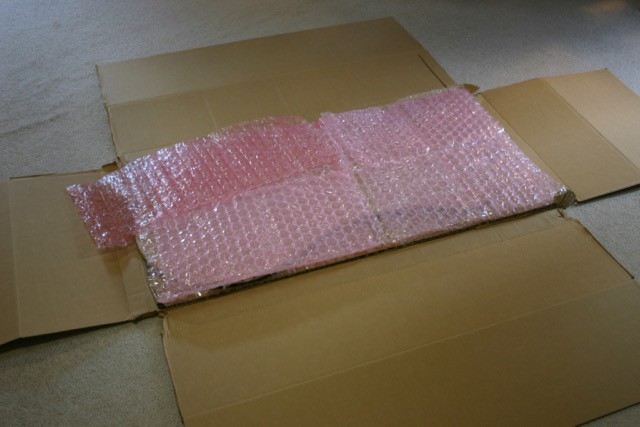
I opened the well packaged box of laser cut material.
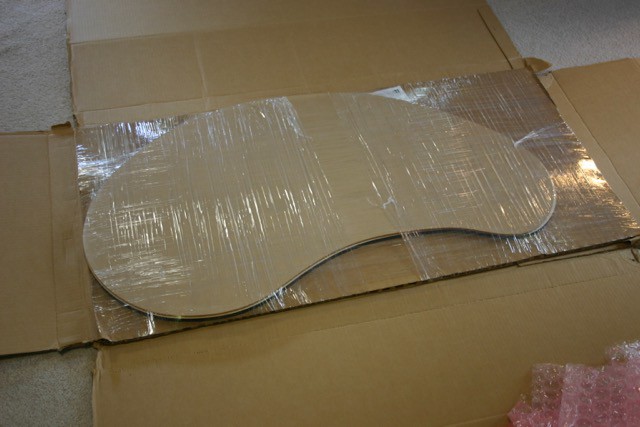
This is the acrylic.
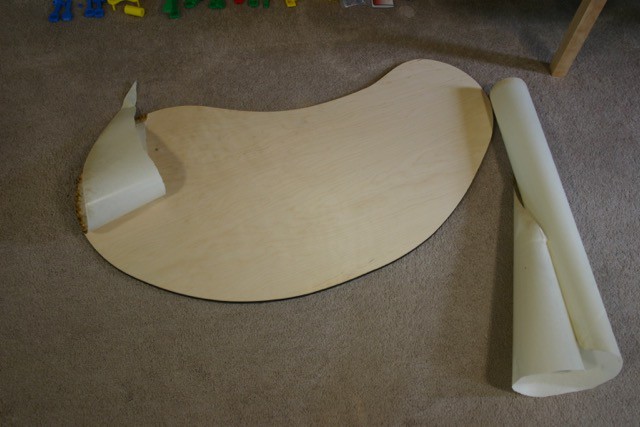
This is the plywood.
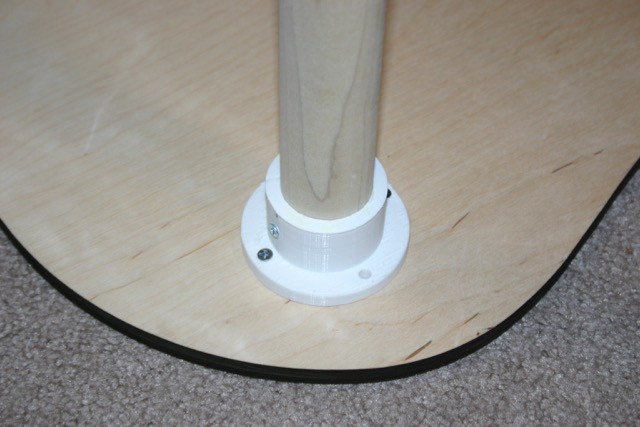
Legs mount using 3/4" wood screws.
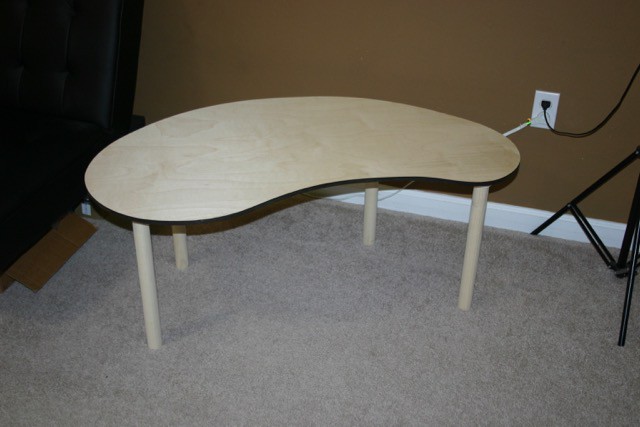
Unpainted, the table base looks like this.
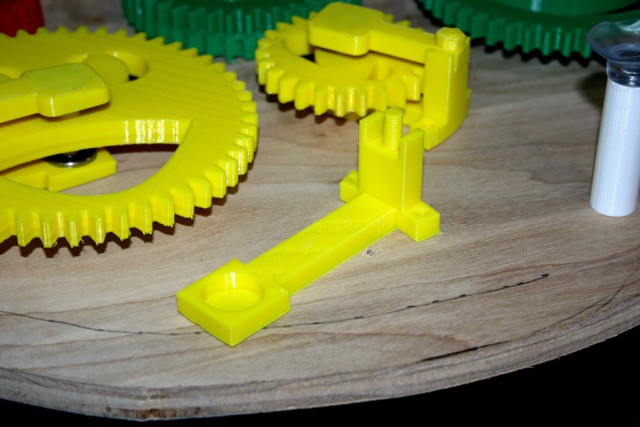
Every gear has a bearing support lower, upper and a printed nut to secure them together. The bearing supports have two screw holes and wood screws secure the gear to the table. Each gear must be placed and checked for ease of motion before securing the screws.
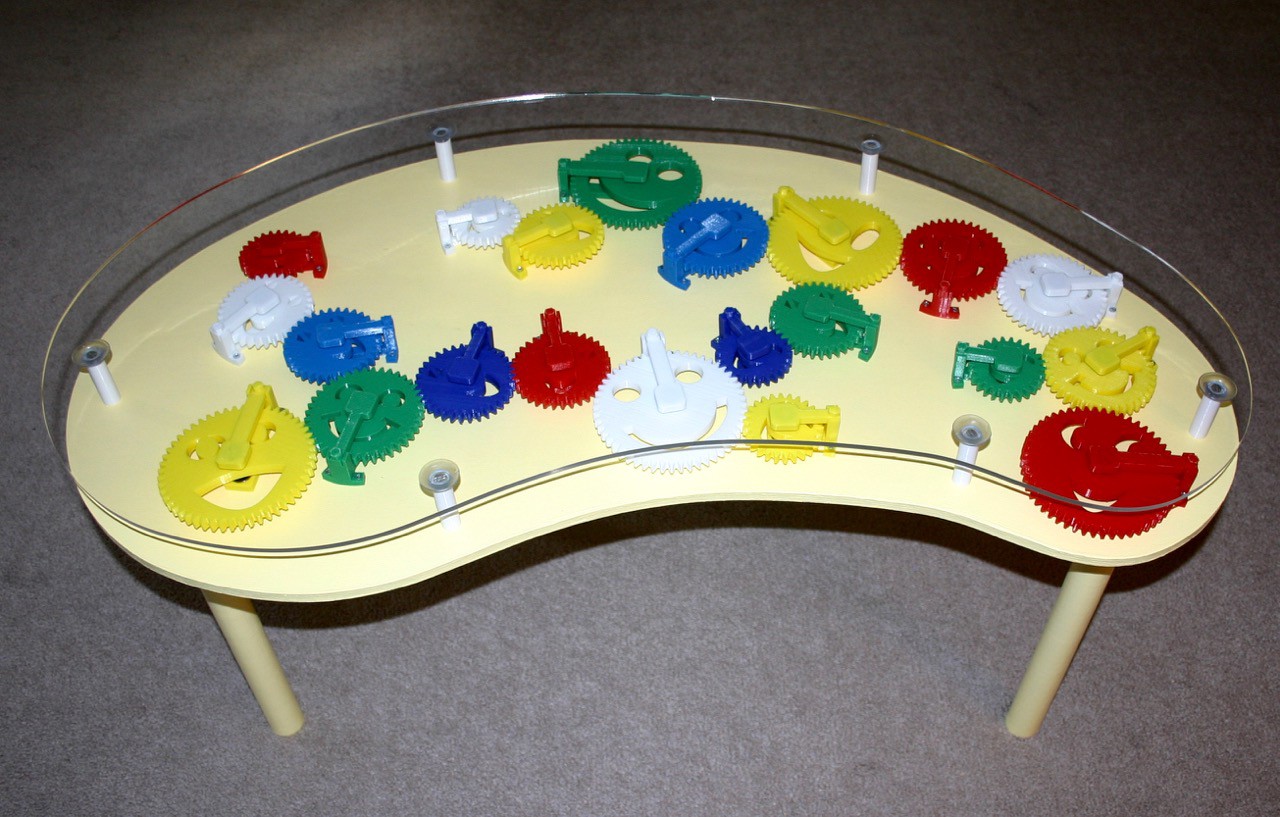
With plain supports, the table looks like this--so many choices :)
 Mike Rigsby
Mike Rigsby
Discussions
Become a Hackaday.io Member
Create an account to leave a comment. Already have an account? Log In.